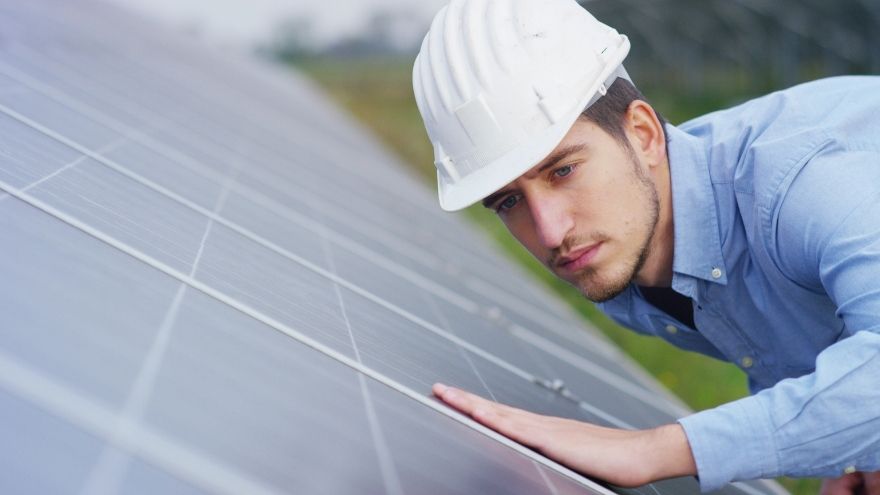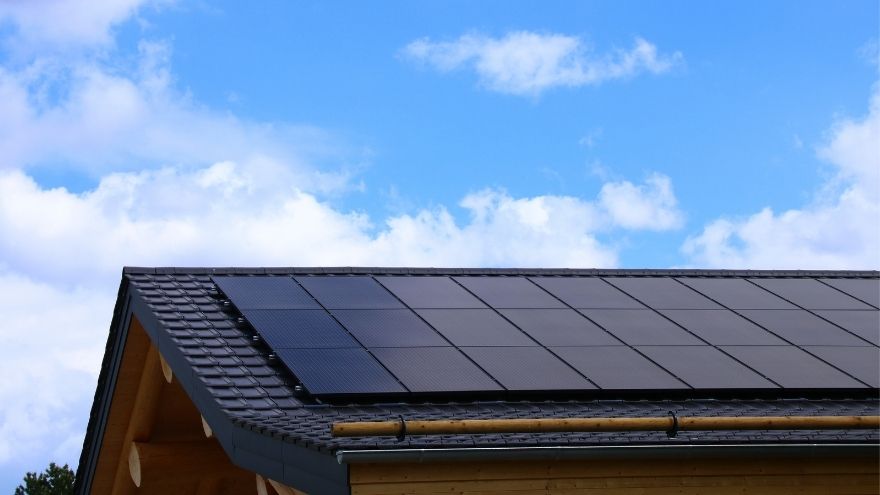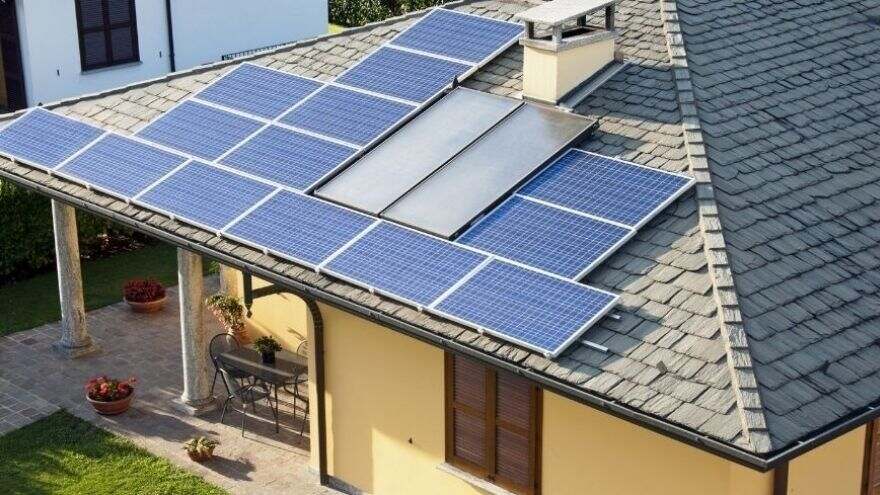In recent years, Poles have been very willing to invest in photovoltaic installations . They were a good way to reduce electricity bills and become partially or completely independent from electricity increases. However, in 2022, new rules will come into force, which, according to critics, will make photovoltaics unprofitable. Is there really anything to be afraid of? Is it worth investing in this type of electrical installation? See what exactly will change in the Renewable Energy Sources Act!

Check out photovoltaic panels in Onninen
What changes apply from April 1, 2022?
The most controversial rule in the Renewable Energy Sources Act is the method of settling prosumers for surplus energy produced. The new regulations entered into force on April 1, 2022. They are addressed only to future owners of PV micro-installations (systems with a power of up to 50 kW). The net-billing model will replace the current net-metering system. What is it really about?
Energy production from a photovoltaic installation is closely related to sunlight and temperature. For our latitude, the peak of energy production occurs at the end of spring and summer. In many cases, significant surpluses of electricity are produced, which can be used during periods of lower system efficiency, especially at night and in the winter season. Until now, prosumers had the opportunity to store energy in the power grid. For this service the operator charged:
- 20% of energy for installations with a power of up to 10 kWp,
- 30% of energy for installations with power from 10 to 50 kWp.
The remaining part of the surplus electricity produced could be obtained by the prosumer completely free of charge. This solution allowed him to reduce the amount of bills by up to 80 - 90%, which were limited to the value of fixed fees only.
 After introducing changes to the RES Act, the above-described discount system no longer applies to installations submitted for connection after April 1 (except for installations implemented under "umbrella programs" co-financed by the Regional Operational Program, provided that an agreement for their purchase and installation has been concluded until March 31, 2022, and the connection application will be submitted by March 31, 2023). It will be replaced by the so-called net-billing system, i.e. a kind of transaction model. According to it, surplus electricity will be sold to the operator at the average price that the energy achieved in a given month on the Polish Power Exchange (hourly rates will come into force in 2024). In this way, the prosumer will have the opportunity to save funds on his virtual account that, if necessary, will be able to cover the value of electricity drawn from the network. However, a supplier tariff will be imposed and the settlement period will be 12 months.
After introducing changes to the RES Act, the above-described discount system no longer applies to installations submitted for connection after April 1 (except for installations implemented under "umbrella programs" co-financed by the Regional Operational Program, provided that an agreement for their purchase and installation has been concluded until March 31, 2022, and the connection application will be submitted by March 31, 2023). It will be replaced by the so-called net-billing system, i.e. a kind of transaction model. According to it, surplus electricity will be sold to the operator at the average price that the energy achieved in a given month on the Polish Power Exchange (hourly rates will come into force in 2024). In this way, the prosumer will have the opportunity to save funds on his virtual account that, if necessary, will be able to cover the value of electricity drawn from the network. However, a supplier tariff will be imposed and the settlement period will be 12 months.
The difference between the sales and purchase prices of electricity alone will cause the prosumer to lose out on storing surpluses in the network. Moreover, if the value of the energy introduced turns out to be too low compared to the cost of energy consumed, the owner of the micro-installation will be obliged to pay. Just like any consumer purchasing energy at market prices. It should be noted, however, that this principle also works the other way around. If the prosumer manages to return more electricity to the grid than he consumes, he will receive a refund from the operator. Nevertheless, it will be limited to 20% of the energy value stored in a given calendar month.
Why were changes introduced to the RES Act? Were they absolutely necessary?
New prosumers may not like the net-billing system. This is not surprising, because unlike people who invested in photovoltaics until March 31, 2022, they will be settled on less attractive terms. How does the Ministry of Climate and Environment defend its decision? In their opinion, changes in the draft act were dictated by the requirements of European law, and more specifically, the need to adapt the settlement system to European Union directives. These, in turn, assume that prosumers should participate in bearing distribution costs, for which discounts have been available in Poland so far.
Other factors influencing the amendment of the Act
It is also worth mentioning other reasons affecting the amendment of the Act. The growing number of prosumers and, consequently, the increase in the amount of energy stored in the power system pose new financial and infrastructural challenges to operators. The discount model exposes them to ever greater losses, and the network itself has not yet been adapted to transmit energy in both directions. Of course, this results in network instability. To deal with these problems, a change to the existing rules was necessary.
Is it profitable to invest in photovoltaic installations?
The amendment to the act caused some experts to consider the installation of a photovoltaic installation less profitable. However, this is quite a subjective and short-sighted approach. For consumers with high auto-consumption (who currently consume the energy produced by our installation), the new billing system will not introduce any changes. Although connecting micro-installations to the grid may turn out to be less advantageous than the current system of discounts, with constantly rising energy prices, a PV installation will guarantee us very large savings. In this case, electricity will become easily available to Polish households.
When planning a photovoltaic installation, it is worth taking into account the new billing system to maximize the benefits of its operation. The future prosumer has no choice but to invest in photovoltaics that allows for his budget and the structure of the building. Calculating the optimal power of a PV installation is no longer necessary because the new draft law makes it higher. And this is undoubtedly good news for everyone.
Check out photovoltaic panels in Onninen
The amount of energy stored in the network directly translates into the value of electricity that can be collected at no additional cost. Moreover, large surpluses may even provide the prosumer with a payment of funds, which will definitely accelerate the return on investment in photovoltaics.
Assuming that the operator pays up to 20% of the value of the energy fed into the network, it is difficult to talk about oversizing a classic photovoltaic installation. This would only be possible with very high-power systems mounted on the ground. Therefore, it is worth using various subsidy programs for renewable energy sources and using photovoltaics to cover not only the current but also the future demand for electricity on the farm.
When thinking about installing a photovoltaic installation, it is worth familiarizing yourself with these changes. Either way, it will certainly be more beneficial for us at this point.

Benefits of installing a photovoltaic installation after April 1, 2022.
For new prosumers entering the market after April 1, 2022, consuming energy on an ongoing basis will become very important. The more free electricity you can use when operating photovoltaic panels, the less you will have to buy it from the supplier at retail prices. It is worth considering running electronic devices - such as washing machines or dishwashers - during sunlight hours.
If we can, we should try to eliminate the costs of using electricity by charging electric cars during the day or heating the house with a heat pump. This will certainly result in us receiving smaller bills, and I think that's what it's all about.
An additional convenience will be energy storage facilities, which will store part of the surplus produced for periods of lower panel efficiency. They will benefit households that are forced to frequently purchase electricity stored by the operator. Installing an energy storage facility may also increase the independence of the installation from interruptions in energy supplies from the operator's network. Most manufacturers of storage systems enable the use of an emergency power supply function (back up) for key household consumers.
Exchange benefits in the new OnnTop loyalty platform!
Design photovoltaic installations with the Onninen wholesaler!
When working on photovoltaic installations for your clients, be sure to order them from our online wholesaler. At the Onninen electrical wholesaler , you will find high-quality solar modules as well as other elements necessary to create an efficient PV system. These include energy storage facilities that will increase the profitability of any new photovoltaic installation! We invite you to purchase today!